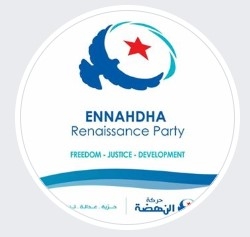Tunisian Islamists Aim for Power After President’s Death
by Hany Ghoraba
Special to IPT News
Investigative Project on Terrorism

Tunisian Islamists are hoping to return to power in upcoming elections triggered by last month’s death of President Beji Caid Essebsi.
And for the first time, the Islamist Ennahda Party has a candidate running. Ennahda, founded by Rachid Ghannouchi in 1981, has links to the Egyptian Muslim Brotherhood and follows its ideology.
Abdel Fattah Mourou, 71, has been Tunisia’s acting parliament speaker since Essebsi died July 25, and now is Ennahda’s candidate to replace him. His campaign platform thus far is vague, with Mourou promising “to serve the nation’s goals to attain its pride and dignity hand in hand with my Tunisian brothers. We seek to preserve the republic and to support the state and its institutions.” He presents himself as a “reformer,” criticizing the Muslim Brotherhood for mishandling its chance at governing Egypt and for its ultimate goal of establishing a global Islamic state. “It will never happen! It would be better if you dreamt of how to play a positive role in your own country,” he said. “Your country is your goal. You should work for the benefit of your country.”
Despite such talk, Mourou maintained ties with the Islamist leaders, including Brotherhood ideologue Yusuf al-Qaradawi, whom he visited in Qatar in 2015.
Ghannouchi, meanwhile, is running for a seat in parliament. If he wins, he quickly could rise to become the parliament’s speaker. The speaker becomes interim president in case a president fails to perform his duty or dies, according to the Tunisian Constitution. That’s what happened with current interim president Mohamed El Nasser.
Before he died, Essebsi represented a stabilizing force in Tunisia after civil strife in 2013 was triggered by worsening security, economic conditions and the assassination of opposition leaders. Ennahda won a plurality in Tunisia’s first elections after longtime President Zine al-Abidine Ben Ali was forced out in 2011 during Arab Spring protests.
Just two years later, the prime minister, an Ennahda member, resigned, and the party gave up other key government ministries.
Essebsi then tried to initiate secular social reforms, including gender equality in inheritance laws and freedom for Muslim women to marry non-Muslims. But Ennahda rejected these ideas, which failed to pass in parliament. The fate of those reforms could be determined in the two upcoming elections.
Some Islamist preachers rejoiced at Essebsi’s death and told Muslims not to offer prayers for him.
Tunisians now are bracing themselves to face two major elections in the next two months: The first is the Sept. 15 snap presidential elections, while parliamentary elections that were originally set for November have been moved up to Oct 6.
Poll results have been fluctuating since December. A poll conducted then by Sigma Conseil showed Ennahda leading the secular Nidaa Tounes coalition 36 percent to 29 percent. Support for Ennahda then plummeted to only 18 percent in a May poll. It wasn’t clear what triggered the change. Ennahda blamed the pollster: “We reject Sigma Conseil’s attempts to redirect the public opinion … The movement expresses its amazement of the poll that dropped the chances of Ennahda from 33 percent in February 2019 to 18 percent in April and that was paralleled by a skyrocketing rise to other political entities,” it said.
But a poll taken last month by Emrhod Consulting found Ennahda with only 8.6 percent support. A new party, the Heart of Tunisia, described as populist, polled highest and is promising economic liberalization and social reform.
Former Defense Minister Abdel Karim Zbidi recently posted a graphic from a poll said to be taken last week by the Swiss-based Stratege Consulting, which shows a tight race with former Defense Minister Abdel Karim Zbidi leading, followed by businessman Nabil Karoui, who founded the populist Heart of Tunisia party. Prime Minister Youssef Chahed is in fourth, and Ennahda’s Abdel Fattah Mourou is in fifth place.
But the top five candidates all are within two percentage points of each other, well within standard polling margins of error.
Thus far, the independent Tunisian electoral body has approved 26 out of 96 announced presidential candidates. Among them are some with significant visibility.
Prime Minister Chahed formed a new party in January called “Tahya Tounis” (“Long Live Tunisia”). Tahya Tounis is a secular center-left party that is led by Essebsi’s son Hafez Essesbi.
Tunisia’s first post-revolution president, Moncef Marzouki, also is running. Known for siding with Islamists, Marzouki called on Ennahda to ally with him last January. He also called upon Tunisian leftists to join him saying, “your real enemy is poverty, not Islam and Islamists.”
He is known to be a staunch Islamist ally. In an interview with Al Jazeera, he bluntly called Egypt, United Arab Emirates, and Saudi Arabia “the Axis of Arab Evil” because they are “in favor of Israel and dominant Western economic and military pressure groups. These regimes’ main task is the breaking of the spirit of the Arab revolutions and preventing the Arab peoples from determining their destiny and possessing their wealth.”
Zbidi resigned his position as defense minister to run for president, and may be the candidate supported by secular Tunisians. Secular parties Nidaa Tounes and the Afek Tounes have endorsed Zbidi and he may be among the front-runners.
“I don’t need an endorsement from Ennahda and I reject their support for we don’t share the same ideologies,” he said. If elected, he promised to open secret files which detail Ennahda’s “Secret Apparatus,” which allegedly murdered political opponents.
Tunisia faces economic challenges, including a growing national debt and rising unemployment and inflation. Meanwhile, ISIS threatens more terrorist attacks and bloodshed in the North African country.
Tunisian Islamists see these elections as a great opportunity to secure full power in the country by running their most famous, yet aging candidates, such as the 71-year-old Mourou and the 78-year-old Ghannouchi. Given setbacks and defeats in other countries in the Middle East such as Egypt, Sudan and Libya, this election is crucial for Islamists. In 2014, Ennahda won 69 seats of Parliament’s 218 seats, while Essebsi’s Nidaa Tounes party won 86, and was able to control the government with the help of allied parties. Tunisia’s direction, either continuing down the path of secular reforms or returning to Islamist control, lies in the balance in the two upcoming votes.
Hany Ghoraba is an Egyptian writer, political and counter-terrorism analyst at Al Ahram Weekly, author of Egypt’s Arab Spring: The Long and Winding Road to Democracy and a regular contributor to the BBC.

The Investigative Project on Terrorism kindly allows Modern Tokyo Times to publish their articles. This important think tank provides essential information in the area of terrorism.
https://twitter.com/TheIPT Investigative Project on Terrorism twitter account
http://www.investigativeproject.org/ – Investigative Project on Terrorism
https://www.investigativeproject.org/8036/tunisian-islamists-aim-for-power-after-president